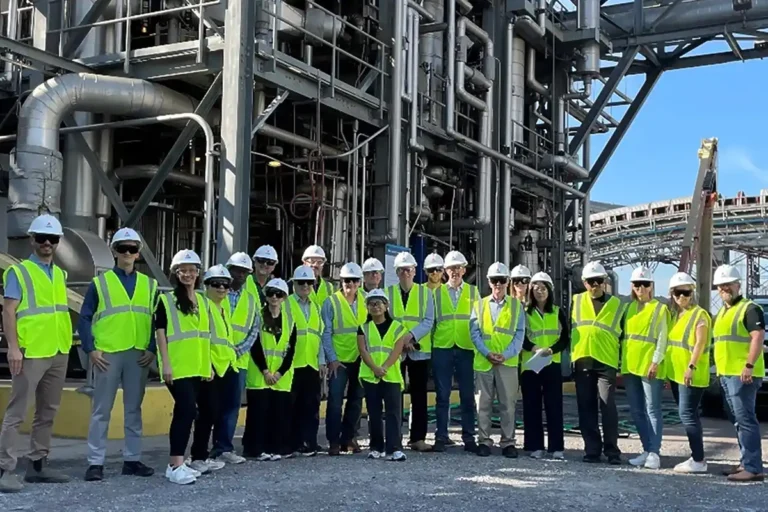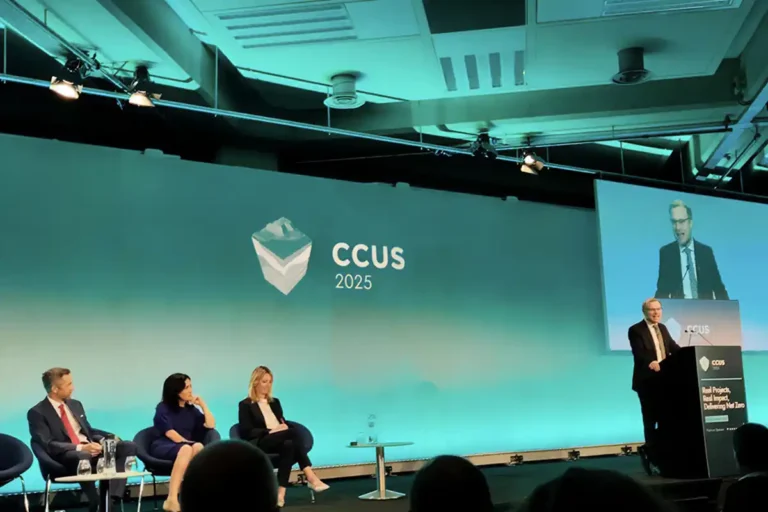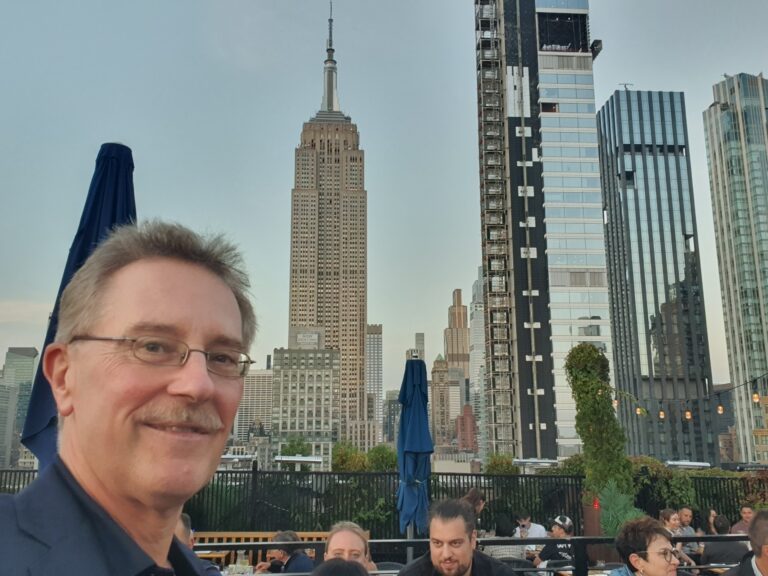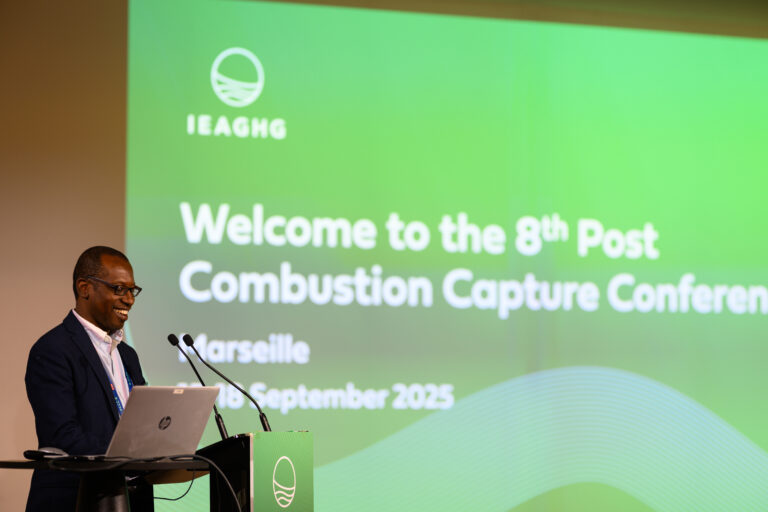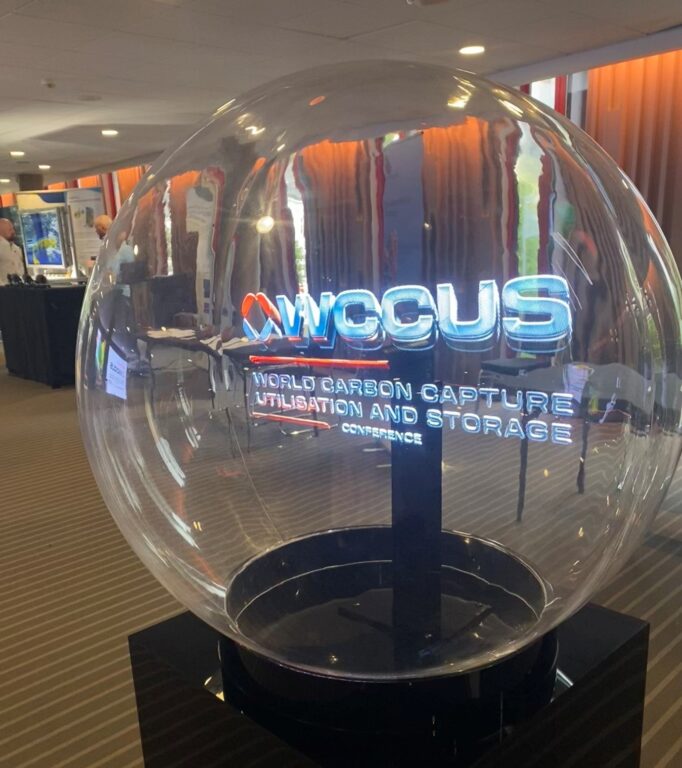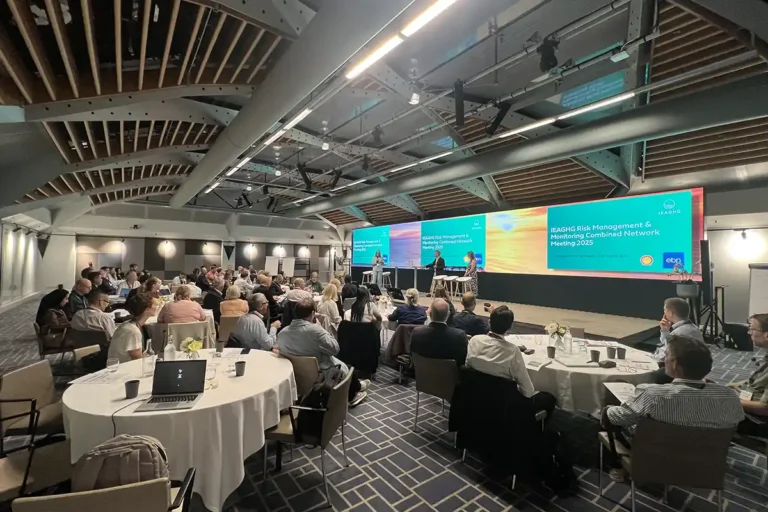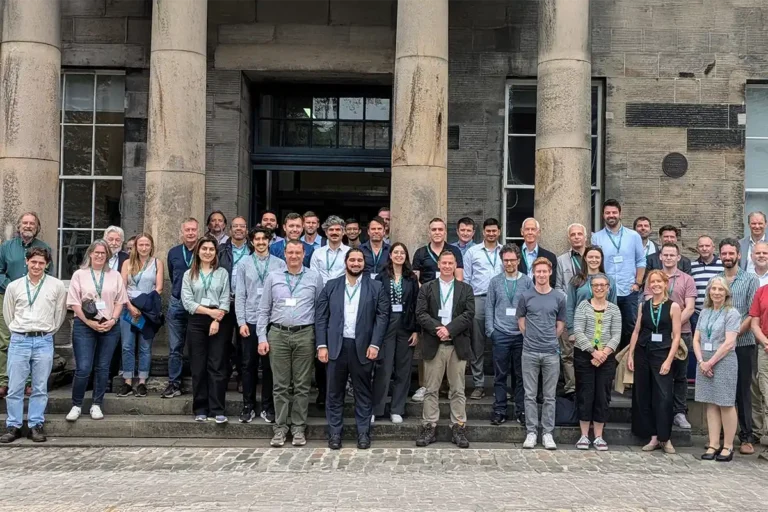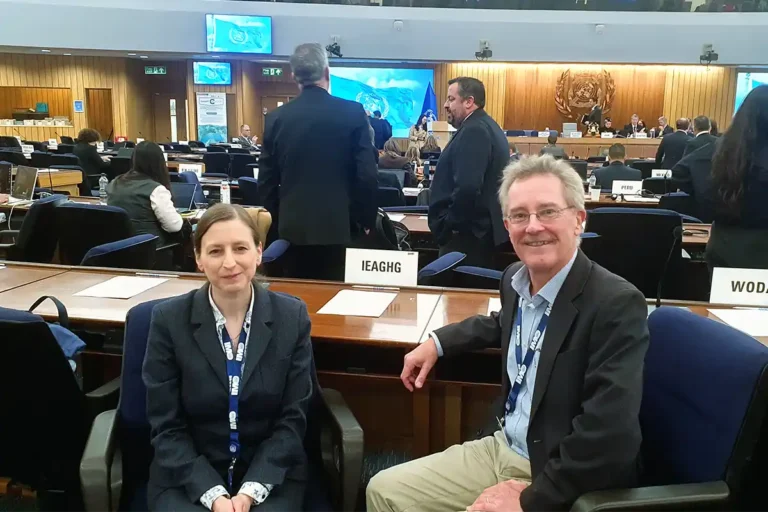
Reflecting on the 4th CCS Symposium: Effective Characterisation of Storage Sites
9 September 2025
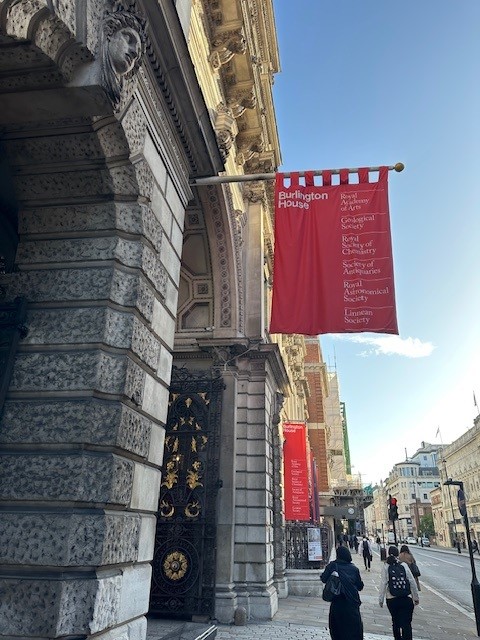
On the 2nd and 3rd of September 2025, the Energy Group of The Geological Society hosted the 4th Carbon Capture and Storage (CCS) Symposium at the iconic Burlington House in London. With the theme “Effective Characterisation of Storage Sites”, the event brought together around 50 in-person attendees and a wider online audience, creating a vibrant space for knowledge exchange, networking, and collaboration.
A Deep Dive into Subsurface Characterisation
Over two packed days, seven sessions explored real-world CCS projects, experimental research, and modelling efforts across a range of scales—from basin-wide assessments to pore-scale investigations. Topics included:
- Subsurface heterogeneity and faulting
- Injectivity challenges
- CO₂ storage potential in basalt formations
- Comparative approaches to site characterisation
While much of the focus was on UK-based projects, international perspectives were also represented, notably through contributions from Alex Bump and Sylvain Thibeau .
Keynotes That Set the Tone
The symposium opened with a welcome from Claire Glover, who posed a critical question: Does our current appraisal practice support cost-effective deployment, and how can we balance cost and timelines?
Matt Ferris (North Sea Transition Authority, NSTA)
Matt delivered the first keynote, reflecting on lessons learned from the UK’s carbon storage licensing journey. He highlighted the IEAGHG as a valuable resource for their evidence based literature and hinted at a new licensing round expected by year-end.
Sarah Buchanan (bp)
As Subsurface Manager for the Northern Endurance Partnership JV, Sarah shared insights into their storage permit process which dovetailed the NSTA writing their guidelines. She described their site as “homogenously heterogeneous”, a 4-way structural closure, with low-risk faults and legacy wells. She also discussed their monitoring strategy, which balances proven and emerging technologies, and noted that six wells with P-T gauges will soon provide a wealth of data for analysis.
Alex Bump (Gulf Coast Carbon Centre)
Alex’s keynote revisited basin-scale characterisation, addressing emerging concerns such as pressure build-up, brine displacement, and the role of multiple storage sites. His call to “make faults boring again” resonated with the audience and tied in well with earlier discussions on pressure management.
Chris Furby (Perenco)
Chris gave the final keynote with a compelling presentation on the Poseidon Project, which tested CO₂ injection into the ultra-depleted Leman Gas Field—the UK’s largest. The project successfully demonstrated injectivity and multi-phase injection, achieving rates of 1 million tonnes per annum. While some monitoring techniques like Distributed Acoustic Sensing Vertical Seismic Profile (DAS VSP) were less effective, others showed promise such as the 5 spot trace seismic method.
Key Takeaways
The symposium offered a wealth of insights. Some standout messages included:
- Uncertainty remains around how offshore storage might affect unconfined onshore aquifers (e.g., Gulf Coast, US; Humberside, UK).
- Lower injection rates may lead to greater overall storage capacity in multiple projects at the basin scale.
- Heterogeneity, permeability, and faulting significantly influence migration-assisted residual trapping.
- Sub-seismic faults are likely not a major concern.
- A legacy well studies showed that degraded cement permeability and the permeability of shallow permeable zones are key risk factors to formation fluid movement, though shallow sands may offer bypass pathways.
- Basalt formations in Northern Ireland show early promise for CO₂ storage.
A Strong Showing from the Next Generation
A special commendation goes to the postgraduate students who contributed high-quality research and fresh perspectives throughout the event. Their involvement bodes well for the future of CCS in the UK and beyond.
Kudos to the Energy Group for curating such a well-rounded and thought-provoking programme, we look forward to the 5th.
Other articles you might be interested in
Get the latest CCS news and insights
Get essential news and updates from the CCS sector and the IEAGHG by email.
Can't find what you are looking for?
Whatever you would like to know, our dedicated team of experts is here to help you. Just drop us an email and we will get back to you as soon as we can.
Contact Us Now

